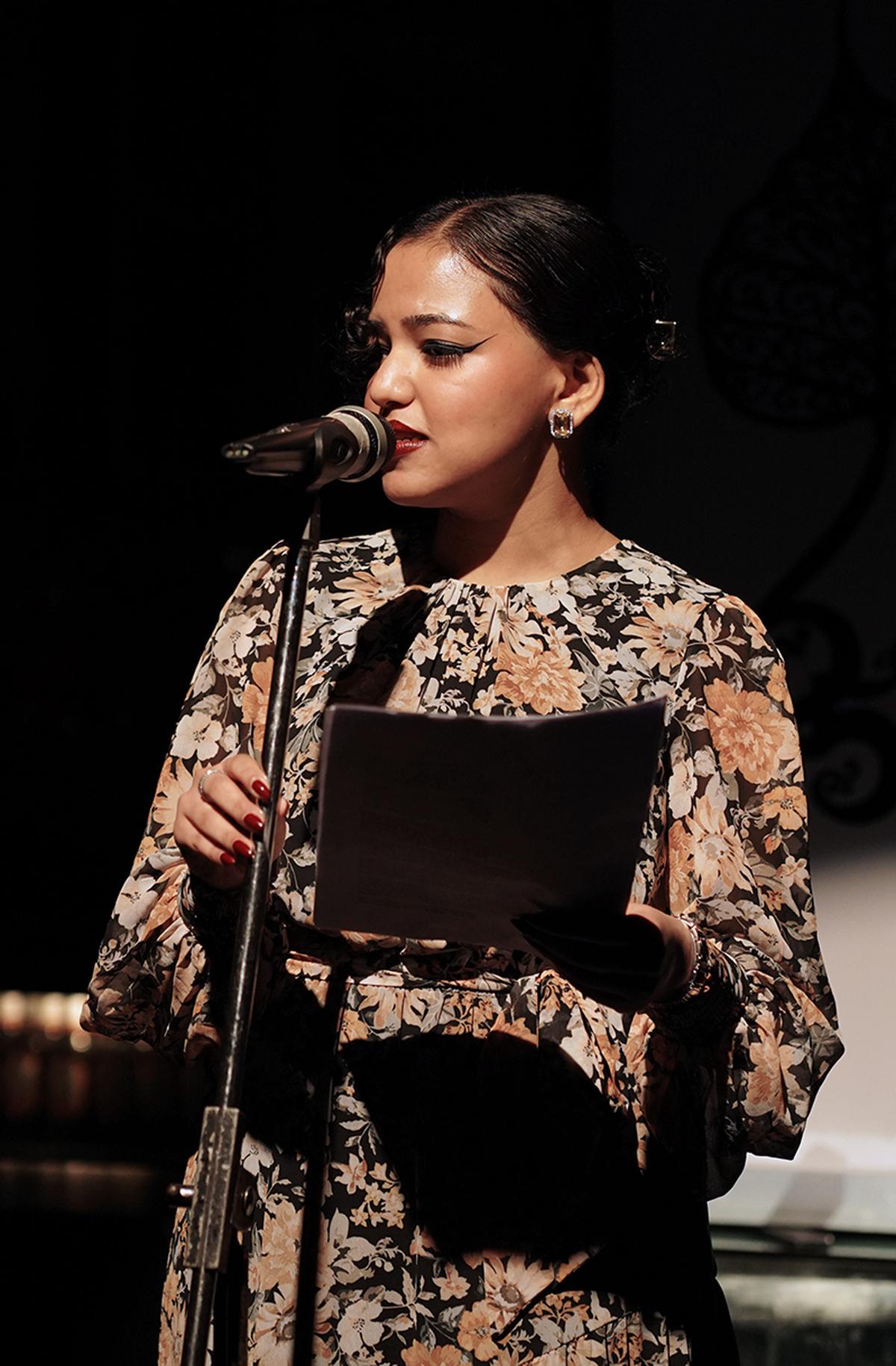[ad_1]
The recital by Prakriti Foundation
| Photo Credit: Special Arrangement
The familiar darkness and sparkle of flamboyant chandeliers at The Park’s Pasha is reminiscent of early millennial clubbing and ‘90s classics; It is perhaps the most unlikely (or the most fitting?) meeting place for a venerated group of Indian contemporary poets. Jeet Thayil says with a chuckle, “When people drink, they tend to like poetry more.”
The group, which is minutes away from a recital, is busy figuring out how to make Miles Davis play in the background as they read. Slight nerves are palpable; the kind specific to people who are more comfortable with the page than the mic. As they take up the corner couch, they also catch up on all things ‘life’, but more specifically words, both new and old. “It’s a solitary act, you know?,” says Shikhandin. For the poets, the evening is definitely more than just a recital.
Jeet Thayil
| Photo Credit:
Special Arrangement
At the reading curated to celebrate Chennai-based Prakriti Foundation’s 25th anniversary, poets Jeet Thayil, Tishani Doshi, Sivakami Velliangiri, K Srilata, Sikhandin, Alolika Dutta and Joshua Muyiwa are under the spotlight, as they read selected poems.
The packed audience soaks in verses that reflect on everything from speedos to gun control. Encouraging, soft applause fills the room as each poet recites to the backdrop of a stacked bar. Ahead of his cryptically funny recital, Joshua Muyiwa says, “During the pandemic, I decided to re-read the Bible for some reason. Around the time, I also had a break up. A strange intersection of these two aspects came together in these poems.”
The event also trains the spotlight on The Penguin Book of Indian Poets (published by Penguin) which Jeet curated, featuring most of the poets in attendance. The volume covers 94 poets spanning 75 years, and different generations that now make up the world of English poetry by Indian writers.
Jeet says he started working on the first edition of this volume in 2003. So it has effectively been a 20-year endeavour. “This particular version is the fourth and final one, and I do feel that it came together in the pandemic years, when there was this sense of urgency,” says Jeet. It was inspirational to bring an unexpected group of poets together, “from new, young poets to the usual suspects and some forgotten ones too”.

Alolika Dutta
| Photo Credit:
Special Arrangement
But what makes an Indian contemporary poet? Jeet passes the mic to the rest.
“We forget sometimes that we are actually a community; all part of a movement. It’s only when we meet that we remember this,” says Jeet. Adds K Srilata, “I also think of it as a conversation. We are not aware of this conversation unless and until we read each other in a book or meet each other at a reading. Otherwise, it’s pretty much a solitary act.”
Jeet adds that the one thing that makes them aware of their identity as Indian poets writing in English is unfortunately the flak or resentment they collectively receive from poets who write in regional Indian languages. “This flak unites us all.”
Sivakami Velliangiri
| Photo Credit:
Special Arrangement
What makes an Indian poet is not just the language, says Tishani Doshi. “It’s so many things and some of these connections are tenuous. I have a poem Your body language is not Indian. I was actually told that when I danced, which I think is a veiled insult. The very large size of this anthology is testament of the fact that it has tried to be as inclusive as possible, to bring in as many ‘Indias’ as possible.”
To hear so many voices together creates a sense of polyvalency that some people still think of as India, adds the poet. Sivakami weighs in, “On the other hand, Srilata has included a lot of Tamil words like alamaram, arasi…It is to show that it’s perfectly okay to write as we think, and as we speak.”
[ad_2]
Source link

